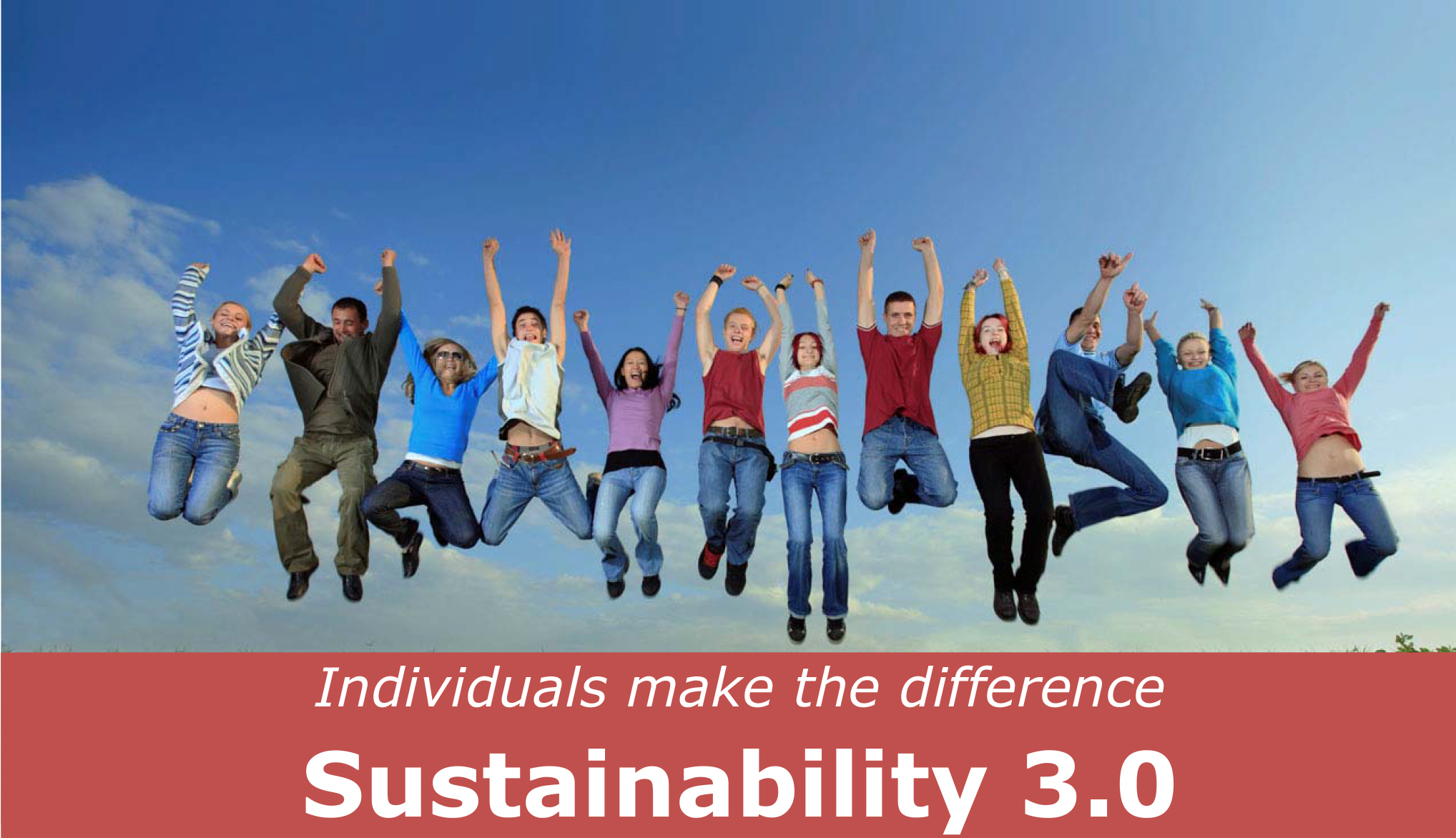
Sustainability and corporate social responsibility may be topics of interest, but they have little to do with individuals. How can an individual contribute to a sustainable world, now and in the future? Businesses can have an effect by involving their employees in their sustainability policy. For them, however, it is not enough to say that they work in a sustainable building. The more important point is whether their behaviour inside that building is sustainable. Facility managers can encourage this kind of behaviour.
“Change without really wanting to change is a dead end.” (René Stevens)
Research shows that the definition of sustainability is very wide-ranging. It covers more or less everything. Its meaning depends on the context in which it is used, and it is subjective. There is no clear-cut and unambiguous definition. The mention of sustainability moreover often implies an ethical discussion about the goals humanity should be striving for.
The motto People, Planet, Profit (Prosperity) sounds nice, but as a rule, it does not involve more than at most some adjustment of existing practices. At its core, environmental and climate policy requires real, painful political choices. The ‘more’ of economic growth and the ‘less’ that benefits ecology are usually at odds with each other. At the very least, creating awareness among those involved helps in making and accepting necessary choices. Because choices will have either economic or ecological consequences.
Sustainability and corporate social responsibility are in the spotlight, but they are still too distant from the individual. How can the individual contribute to a sustainable world, now and in the future? Companies can exert their influence here by involving employees in the sustainability policy. After all, it is not enough for them to say that they are working in a sustainable building. More important is whether they behave sustainably in the building. For facility managers, there is a role of being the driving force here.
Sustainability 3.0 emphasizes the individual
“From sustainability to quality of life.” (René Stevens)
In the end, it is people with their thinking, emotions and acting who make things sustainable. Here companies can exert their influence. Sustainable behavioural change by making people aware of sustainable thinking and acting, is a process of many small steps, of trial and error, but not impossible. People make their choices not only on rational grounds but largely on emotional grounds. When the heart speaks and people feel connected to each other and have a greater purpose, much is possible.
Read more in the Dutch article ‘Duurzaamheid 3.0: Het individu maakt het verschil’ published in Facility Management Magazine (FMM). (20101124 Facility Management Magazine. Author: René P.M. Stevens MSc Arch/MBA)
For the English translation see: Sustainability 3.0: Individuals make the difference.
